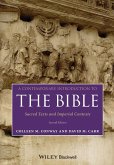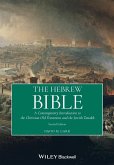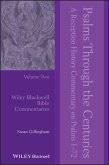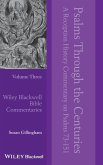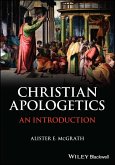An accessible introduction to the New Testament, offering up-to-date historical-critical scholarship and diverse critical perspectives
The New Testament: A Contemporary Introduction presents a concise account of the emergence of Jesus traditions in the broader context of ancient Mediterranean history. Incorporating established historical approaches and alternative academic analyses, this innovative textbook helps students understand the historical and political contexts of the authors and their audiences, and how different social identities and lived experiences influenced the formation of the Bible and its later interpretations.
Accomplished scholar Colleen Conway emphasizes the cultural and literary context of the New Testament while drawing from historical, postcolonial, gender, feminist, and intersectional analyses of biblical texts. Throughout the book, students explore how issues of race, class, gender, sexual orientation, and power dynamics contributed to the production of the New Testament texts and continue to inform their interpretation in the 21st century.
Through twelve chronologically organized chapters, this book examines Paul's mission to the Gentiles, unity and conflict in Paul's communities, the four Gospel narratives, the Revelation to John, Hebrews, 1 Peter, the New Testament canon, early Christian writings, and more. The New Testament: A Contemporary Introduction:
_ Provides an up-to-date introduction to historical and critical methods and central questions in the field
_ Helps students contextualize the different writings of the New Testament as part of the Mediterranean world of the first century, for example exploring how Roman Imperial rule and social stratification affected the authors of New Testament texts
_ Discusses how ideas about gender and race affect the meaning and application of New Testament texts
_ Features "Contemporary Voices" sections highlighting the work of modern New Testament scholars
_ Includes numerous pedagogical tools such as chapter review questions, key term lists, suggested readings, a timeline, maps, illustrations, photographs, a glossary, and much more
Designed for undergraduate students with varying levels of biblical knowledge, The New Testament: A Contemporary Introduction is an ideal textbook for one-semester religious studies courses on the Bible, the New Testament, or early Christianity, as well as undergraduate and graduate students in history, sociology and philosophy.
Hinweis: Dieser Artikel kann nur an eine deutsche Lieferadresse ausgeliefert werden.
The New Testament: A Contemporary Introduction presents a concise account of the emergence of Jesus traditions in the broader context of ancient Mediterranean history. Incorporating established historical approaches and alternative academic analyses, this innovative textbook helps students understand the historical and political contexts of the authors and their audiences, and how different social identities and lived experiences influenced the formation of the Bible and its later interpretations.
Accomplished scholar Colleen Conway emphasizes the cultural and literary context of the New Testament while drawing from historical, postcolonial, gender, feminist, and intersectional analyses of biblical texts. Throughout the book, students explore how issues of race, class, gender, sexual orientation, and power dynamics contributed to the production of the New Testament texts and continue to inform their interpretation in the 21st century.
Through twelve chronologically organized chapters, this book examines Paul's mission to the Gentiles, unity and conflict in Paul's communities, the four Gospel narratives, the Revelation to John, Hebrews, 1 Peter, the New Testament canon, early Christian writings, and more. The New Testament: A Contemporary Introduction:
_ Provides an up-to-date introduction to historical and critical methods and central questions in the field
_ Helps students contextualize the different writings of the New Testament as part of the Mediterranean world of the first century, for example exploring how Roman Imperial rule and social stratification affected the authors of New Testament texts
_ Discusses how ideas about gender and race affect the meaning and application of New Testament texts
_ Features "Contemporary Voices" sections highlighting the work of modern New Testament scholars
_ Includes numerous pedagogical tools such as chapter review questions, key term lists, suggested readings, a timeline, maps, illustrations, photographs, a glossary, and much more
Designed for undergraduate students with varying levels of biblical knowledge, The New Testament: A Contemporary Introduction is an ideal textbook for one-semester religious studies courses on the Bible, the New Testament, or early Christianity, as well as undergraduate and graduate students in history, sociology and philosophy.
Hinweis: Dieser Artikel kann nur an eine deutsche Lieferadresse ausgeliefert werden.


